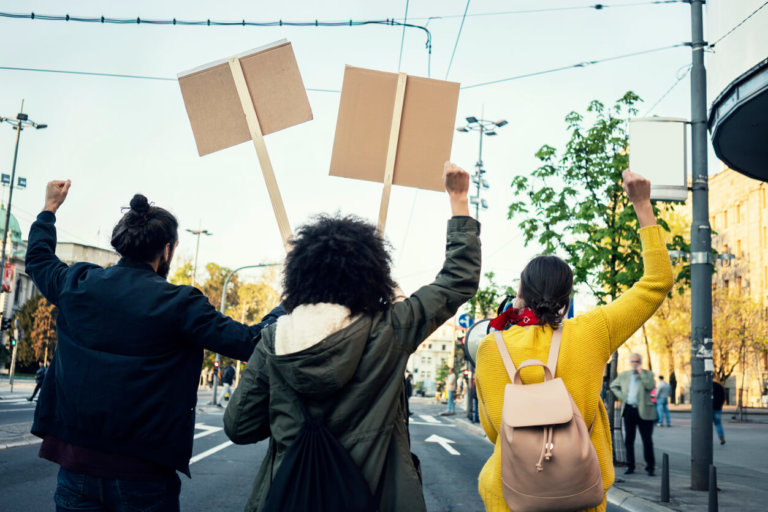The ongoing protests in New York and across the nation following the Minneapolis police’s killing of George Floyd have left many participants concerned about being fired or retaliated against by their employers. In short, whether you can be fired for demonstrating depends on factors such as whether you are a public or private employee and the laws of the state in which you work or live. Ultimately, the best way to protect your rights is to consult an experienced employment lawyer.
Know Your Rights
The First Amendmendment of the United States Constitution affords citizens certain rights, including the rights to free speech and assembly. Those rights only place limits on the government’s power, however, and do not extend to the workplace. Similarly, protections under Title VII of the Civil Rights Act are limited to protesting and organizing against workplace practices, such as discrimination, harassment, or illegal/unethical conduct.
In short, federal laws generally do not protect private employees from being fired for attending a protest. By contrast, government employees are protected from retaliation for exercising their First Amendment rights under certain conditions. The reasoning here is that public employers are an extension of the government. As such, they are bound by the Constitution and cannot punish workers for engaging in protected legal activity.
New York City Protests
The protests in New York have been peaceful for the most part, but have been marred by numerous incidents of looting, vandalism, violence and arson. In addition, countless protestors have been arrested on charges such as disorderly conduct, resisting arrest, and unlawful assembly.
While some protestors have raised concerns that they will be punished for participating in the protests by their employers, New York’s “Legal Activities Law” (New York Labor Law (NYLL) § 201-d) prohibits employment discrimination based on participation in certain political activities, including:
- Running for public office
- Campaigning for a candidate for public office
- Participating in political fund-raising activities
Such activities are permissible as long as they are outside of work and without any use of their employer’s equipment or property. In addition, engaging in recreational activities or hobbies outside of work, such as sports, reading, exercise, and art are also considered legal activities.
While the Legal Activities Law implies that employers cannot fire their workers for demonstrating, the terms political or recreational activities are narrowly defined under the statute and subsequent case law. Therefore, it is unclear whether “peaceful” protesting is considered a legal activity under the NYLL.
Finally, neither the First Amendment nor state law protects employees from retaliation for engaging in illegal activities during a protest, such as marching in the street, failing to obey the lawful order of the police or looting, because state and federal courts have distinguished between free speech and conduct.
The Takeaway
In the final analysis, determining whether participating in a peaceful protest against racism is considered legal activity under the NYLL depends on several variables. If you believe you were fired or retaliated against for exercising your civil rights, turn to the experienced employment law attorneys at Lipsky Lowe LLP. We are committed to protecting the rights of workers in New York and eliminating racial discrimination in all its forms.


